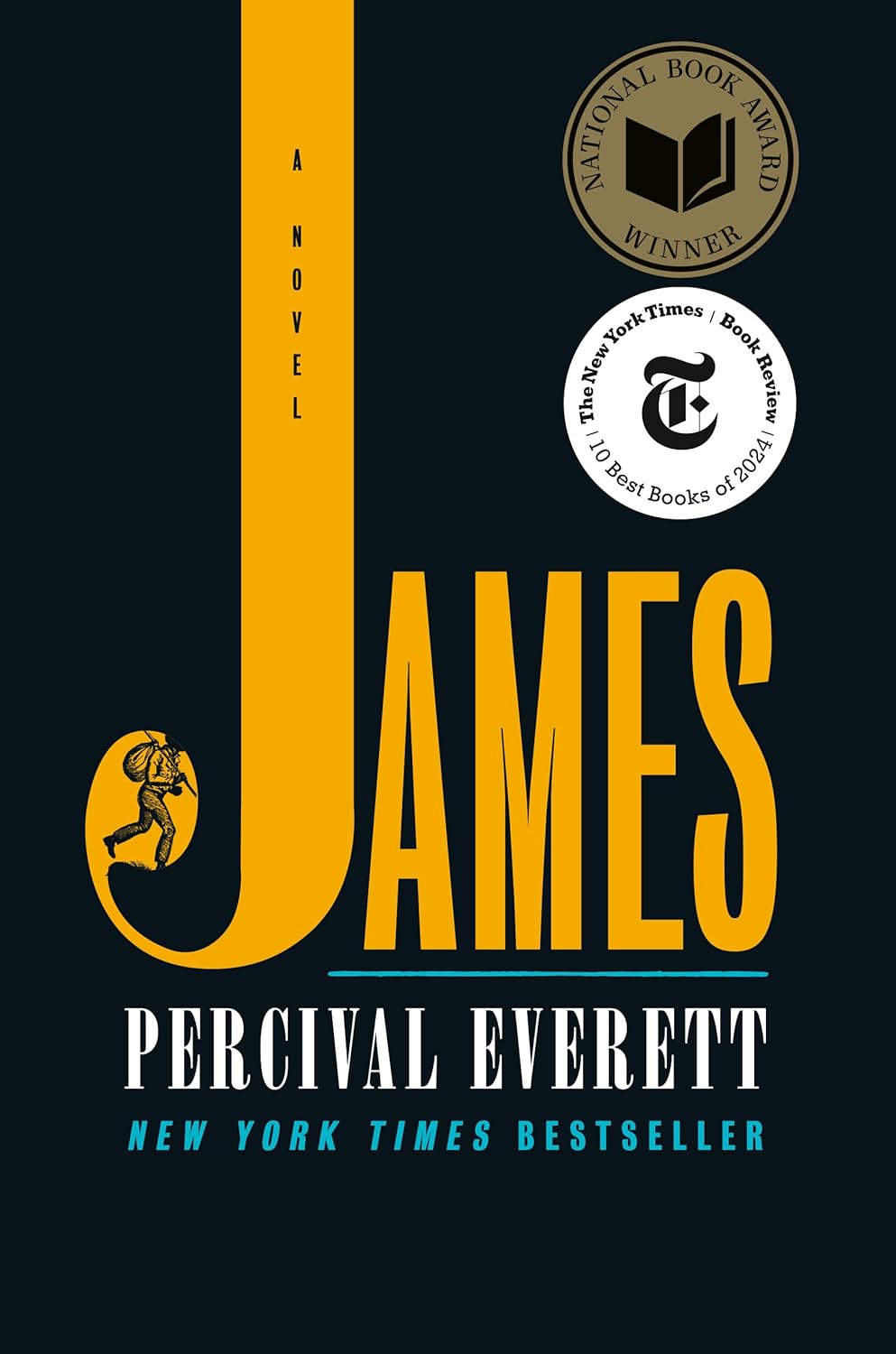
James: A Novel
Part Three:Chapter 12
by Everett, PercivalThe chapter opens with a tense scene of dispersal, as the unprepared and frightened group scatters in different directions. The narrator reflects on the grim possibilities ahead: some will be captured, some killed, and others may return out of desperation. This establishes an atmosphere of uncertainty and danger, with the group’s survival hanging in the balance. The narrator, along with Sadie, Lizzie, Morris, and Buck, manages to flee north to an Iowa town, though their reception is far from welcoming.
Upon arrival, the group encounters hostility from the local white population, though the ongoing war creates a complex dynamic. The sheriff’s suspicious interrogation highlights the racial tensions of the era, as he immediately assumes they are runaways. The exchange underscores the dehumanizing treatment of Black individuals, with the sheriff’s blunt question about “Nigger Jim” revealing the pervasive racism of the time. The group’s identification as runaways confirms their precarious legal and social status.
The confrontation with the sheriff reaches a pivotal moment when he demands to know the narrator’s full name. The narrator’s simple response—“Just James”—carries significant weight, asserting his identity on his own terms despite the sheriff’s attempt to categorize or diminish him. This moment of self-identification becomes an act of quiet resistance, contrasting with the sheriff’s expectation of submission or explanation. The exchange highlights themes of autonomy and dignity in the face of systemic oppression.
The chapter concludes with an unresolved tension, leaving the reader to wonder about the group’s fate in this unwelcoming town. The sheriff’s suspicion and the townspeople’s unhappiness suggest further challenges ahead for James and his companions. The narrative captures the precariousness of freedom for runaways, where even reaching a northern state doesn’t guarantee safety or acceptance. The chapter effectively sets the stage for the ongoing struggle for survival and identity in a hostile environment.
FAQs
1. Comprehension Question
What immediate challenges do James and his companions face upon reaching the town in Iowa?
Answer:
Upon reaching the Iowa town, James and his companions face immediate suspicion and hostility from the white residents, exemplified by the sheriff’s interrogation. The sheriff questions whether they are runaways and specifically asks if any of them is “Nigger Jim,” revealing the racial prejudice and danger they encounter. Their status as escaped individuals during wartime makes them vulnerable to being caught, killed, or forced to return. The tense interaction underscores their precarious position as Black people seeking freedom in a society still deeply entrenched in racist attitudes.2. Analytical Question
How does James’s response to the sheriff’s questioning reflect his sense of identity and dignity?
Answer:
James’s response to the sheriff—insisting on being called “Just James” rather than providing a surname or acknowledging the derogatory label “Nigger Jim”—demonstrates his assertion of personal dignity and autonomy. By rejecting the dehumanizing language and refusing to conform to the sheriff’s expectations, James subtly resists the racial hierarchy that seeks to define him. This moment highlights his determination to claim his own identity, even in a hostile environment where such assertions could be dangerous.3. Critical Thinking Question
Why might the author have chosen to include the detail about the war in this scene, and how does it shape the reader’s understanding of the characters’ situation?
Answer:
The mention of the war serves as a backdrop that heightens the tension and uncertainty of James’s journey. The line “It had something to do with us” suggests that the characters are aware of the broader conflict (likely the Civil War) but are uncertain how it will directly impact their fate. This detail underscores the precariousness of their freedom—while the war might eventually lead to emancipation, in the moment, it creates a chaotic and dangerous environment for runaways. The inclusion of this detail invites readers to consider how historical forces shape individual lives in unpredictable ways.4. Application Question
How might this encounter with the sheriff influence James’s decisions or actions moving forward?
Answer:
This encounter likely reinforces James’s awareness of the constant threat posed by white authority figures and the need for caution. The sheriff’s suspicion and use of racially charged language signal that even in a northern town, safety is not guaranteed. Moving forward, James may become more guarded in interactions with strangers, more strategic about choosing whom to trust, and more determined to reach a place where his identity as a free man is recognized. The experience could also strengthen his resolve to resist dehumanization, as seen in his firm declaration of his name.
Quotes
1. “AS HAPPENS with the frightened and unprepared, we scattered. Some of us would be caught. Some of us would be killed. Probably some of us would go crawling back.”
This opening statement powerfully captures the desperation and uncertainty of escaped slaves, establishing the high-stakes reality they face. The blunt enumeration of possible fates (“caught,” “killed,” “crawling back”) underscores the brutal calculus of survival.
2. “The white people didn’t seem happy to see us, but there was a war on. It had something to do with us.”
This concise observation reveals the complex dynamics of “free” territories during wartime, where Black refugees were tolerated rather than welcomed. The phrase “it had something to do with us” poignantly suggests how enslaved people understood their centrality to the Civil War’s causes.
3. “Any of you named Nigger Jim?” / “I am James.” / “James what?” / “Just James.”
This tense exchange represents a profound moment of identity assertion against dehumanization. The protagonist’s insistence on being called “James” rather than the racial slur “Nigger Jim” marks a powerful act of self-definition, while the sheriff’s persistent questioning (“James what?”) highlights society’s refusal to recognize Black individuals’ full humanity.
